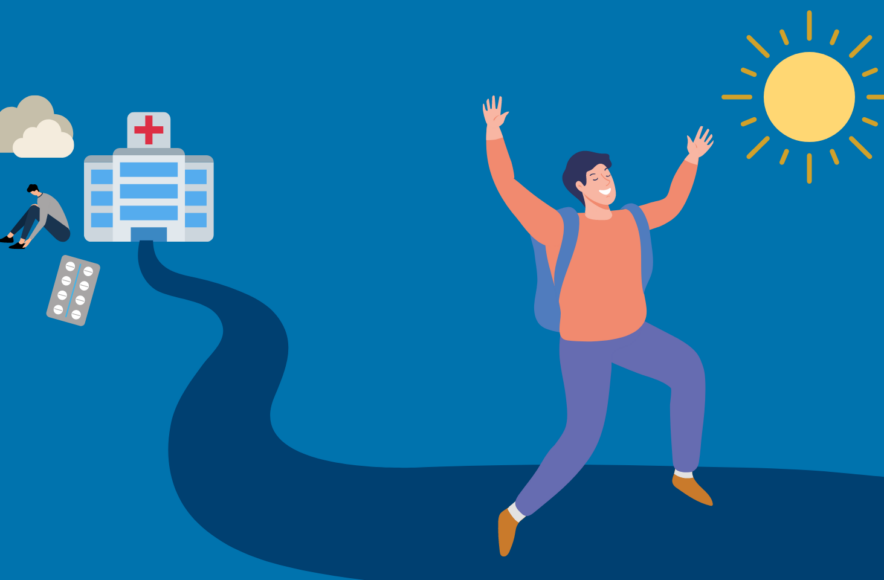Richard’s story: reducing the need for medication with structure and routine

Richard* from North Tyneside has been supported by United Response since 2009.
He was previously in long-term institutions from the age of four. A form of care thankfully rare now, this meant that he was confined to a residential institution and had no experience of going out into the community.
Richard was in his thirties when he first went out into the community. He didn’t have a great experience at first, but since changing his support provider to United Response, Richard hasn’t looked back.
Reducing medication
Richard was previously on a high dose of psychotropic medication, but over the past couple of years, staff have supported him to make changes to his routine which have allowed him to reduce this.
Richard now has a lot of structure which has helped reduce his previously challenging behaviour. He goes for a walk at least three times a day and likes going for a coffee. He has just started doing an art class run by United Response and also goes grocery shopping.
Lockdown restrictions have affected some of the activities Richard enjoys like swimming, but his support workers came up with creative ways to keep him busy inside the house and encouraged him to continue with his three walks a day.
Richard’s support workers are now gradually reintroducing activities such as going out to lunch and day trips. He also goes on holiday a couple of times a year to a cottage in Yorkshire.
Positive behaviour support
Richard has 3:1 support to ensure his safety, especially when out in the community, but at home he is often supported 1:1 to carry out tasks using active support and TEACCH methods.
This well-organised routine, along with other positive behaviour support strategies, has made a huge difference to Richard’s life.
Lead Senior Support Worker Deidre told us about the many positive changes she has seen in Richard since working with him:
When I started working with Richard he didn’t do anything for himself. Staff would get him up, put him in the bath, clean his room, lay his clothes out on his bed and have a cup of tea waiting downstairs for him.
But now he picks out all his clothes, he’s involved in making all his meals and washing the dishes. He is involved in every aspect of his life. He does as much as he can for himself and that’s made a huge difference in his behaviour.
Previously Richard used to engage in a lot of self-injury behaviours such as head-banging, as well as spitting, grabbing and dragging staff.
This used to happen three or four times a week but these behaviours have hugely reduced now and there’s been no incidents like this for the last two years.
This is a massive achievement for both Richard and the staff that work with him.
Deirdre said:
The main factor is that the person we support is so much happier than he was.
The journey from being so distressed as to cause himself injury, to laughing and interacting with staff is transformational.
He’s a lot more relaxed, a lot more settled. When you see this, you know you’re doing your job right.
The staff that work with Richard have done a fantastic job at ensuring he is happy, safe and making progress.
A family reunited
When Richard came to the service, his support workers did not know much about his background and he did not have any known family members.
Staff have since helped him track down some of his family, finding out he is one of seven! He is now in contact with three of his siblings.
Richard is an amazing example of how good support and person-centred care can have a huge impact on the lives of people we support.
His changes in routine and reduction in medication has meant that he can have more independence and control over his everyday life.
Are you ready to make a difference?
We have support worker vacancies at many of our disability and autism services across England and Wales, apply here: http://www.unitedresponse-jobs.org.uk/vacancies
*The names of some individuals in this article have been changed for anonymity purposes.